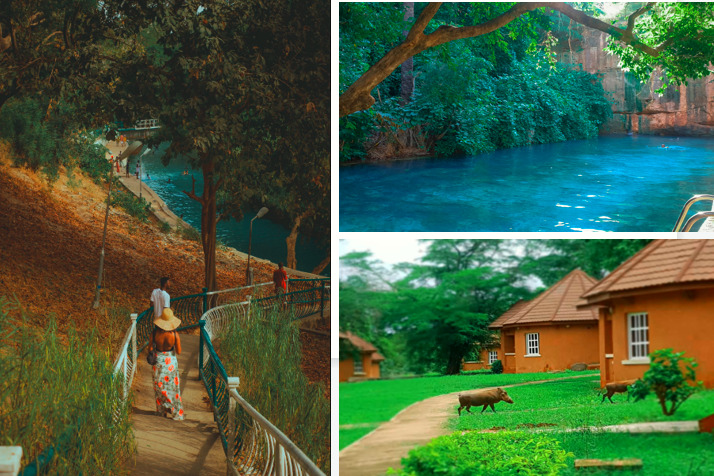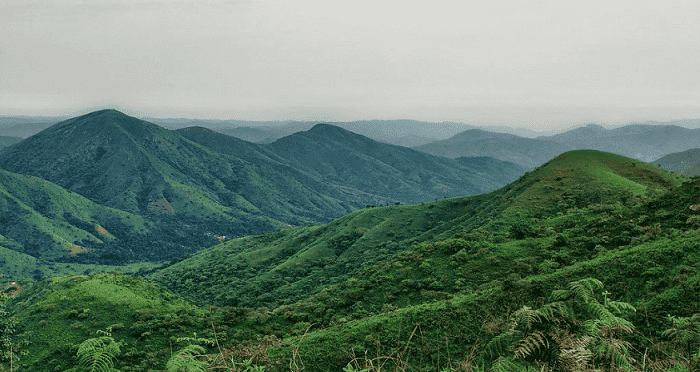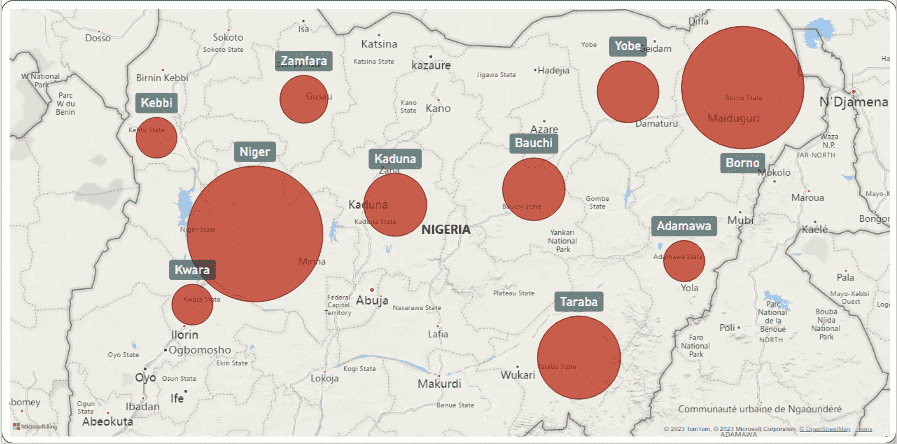Nigeria, a country with diversity and cultural richness, is not only known for its vibrant cities and traditions but also for its vast and varied landscapes. In this post we’ll go on a journey to unveil the largest states in Nigeria by landmass.
Before we dive into the full details, let’s take a closer look at the geographical marvel that is Nigeria. From the dense rainforests of the south to the arid savannas of the north, Nigeria’s diverse landscape is a true reflection of the beauty of nature. With a population as diverse as its landscapes, Nigeria is a mix of languages, cultures, and traditions. While exploring Nigeria’s largest states by landmass, we also discover the flora and fauna of these places. The nation’s natural heritage is rich, from the exotic wildlife in its reserves to the hidden gems hidden within its expansive boundaries.
Top 10 States by Landmass
1.Niger
Claiming the title of Nigeria’s largest state by landmass is Niger State. Located in the northern region, this state is characterized by the diverse landscapes it surrounds. From the vast Sahel desert terrain to the meandering paths of the River Niger, the state offers a striking contrast between aridity and waterways. Niger state occupies a landmass of 76,363km².
The state was formed in 1976 during the regime of General Murtala Mohammed and its capital is Minna. The main tribes in the state are Nupe, Gbagyi, Kamuku, Kambari, Dukawa and Koro
Niger State is home to the famous Gurara Waterfalls, a majestic cascade surrounded by lush vegetation. The Kainji National Park (the largest national park in Nigeria), a haven for wildlife enthusiasts, boasts a diverse range of animal species. The state is also home to two of Nigeria’s hydro electric power plants – the Kainji dam and Shiroro dam.
2.Borno
Located in the northeastern region of Nigeria, Borno is the second-largest state by landmass. With a landscape that extends from the Sahel to the Sahara, Borno offers a glimpse into the arid nature of northern Nigeria. Borno state seats on total landmass of 70,898km²
Borno State is known for the Lake Chad Basin, which is the largest endorheic basin in Africa .The Kanuri people, with their rich cultural heritage, inhabit the state and contribute to its distinct identity.
3.Taraba
Situated in Nigeria’s northeastern region, Taraba State is the third-largest state by landmass. The state occupies a total landmass of 54,473 km². Taraba is nicknamed “Nature’s Gift to the Nation,” and it boasts a diverse range of landscapes, from mountains to rainforests. The Mambilla Plateau, one of the major attractions within the state, offers stunning views and a serene climate. Taraba is also home to Gashaka Gumti National Park. The state’s diverse ethnic groups, such as the Jukun and the Tiv, add to its cultural vibrancy.

4.Kaduna
Kaduna is located in the northwestern region of Nigeria. The State ranks fourth among the largest states by landmass in Nigeria with a landmass of 46,053 km². Known as the “Centre of Learning,” the state is a meeting pot of cultures and a center for education and commerce.
Kaduna’s diversity is reflected in landscape.The Kagoro Hills provide a scenic escape, while the Kajuru Castle is a unique architectural gem nestled within the state’s expanse.
5.Bauchi
Taking the fifth spot among Nigeria’s largest states by landmass is Bauchi State. Located in the northeastern region, Bauchi is a beautiful state filled with natural wonders and cultural heritage.It seats on a landmass of 45,893 km²
Yankari games reserve is the centerpiece of Bauchi’s natural beauty. The games reverse is rich diverse ecosystems and abundant wildlife, which includes elephants, hyenas and lions. For those looking to experience nature in Nigeria, the park offers a unique safari experience. The state’s rich history is also evident in landmarks like the Bauchi Emir’s Palace and the historical city of Misau.

6.Yobe
Yobe State, located in the northeastern region, is the sixth-largest state by landmass in Nigeria. The state was created in 1991 and occupies a Landmass of 45,502 km² and is predominantly an agricultural state.
Yobe State shares borders with Borno State to the east, Gombe to the south, Bauchi and Jigawa States to the west and Niger Republic to the north.
7. Zamfara
Claiming the seventh spot among Nigeria’s largest states by landmass is Zamfara State. Situated in the northwestern region, Zamfara , the state’s motto is “Farming is our pride” reflecting the predominant occupation of the people.The state was carved out of Sokoto state in 1996 and seats on a landmass of 39,762 km².
8.Adamawa
Adamawa State, located in the northeastern region of Nigeria, ranks eighth among the largest states by landmass. Like many states on this list , the State was formed in 1991 when the former Gongola state was divided into Adamawa and Taraba states. The state shares borders with Borno, Gombe and Taraba states. It also forms a part of the national border with Cameroon. Adamawa occupies a land area of 36,917 km2 and is composed of highlands, plateaus and rivers.

9. Kwara
Kwara State, located in the North-central region, is the ninth-largest state in Nigeria by landmass. Kwara was created in 1967 and has a total land area of 36,825 km² which is inhabited by the Yoruba, Nupe, Bariba, Busa and Fulani people.
Important geographic features of Kwara inlude rivers Awun, Asa, Aluko and Oyun.
Kwara state can best be describes as a blend of northern and southern Nigeria. The northwestern part of the state houses the Borgu section of the Kainji national park while the southwestern part of the state houses a section of the old Oyo national park.
10. Kebbi
Tenth on the list of Nigeria’s largest states by landmass is Kebbi State with a total of 36,800 km². Formed from Sokoto state in 1991, the state is located in the northwestern region and nicknamed the “the land of equity” due to its historical significance and diverse ethnic groups that live in the state.These ethnic groups include , the Fulani, Hausa, Zarma, Achipa, Boko Bala, Dendi, Dukawa, Kambari, Kamuku, Lela, Puku, and Shanga.
Birnin-Kebbi, the state’s capital, is famous trading of agricultural produce and livestock. The ancient city of Argungu and its history are celebrated during the Argungu fishing festival.
Check out Nigeria’s Largest cities by population.

